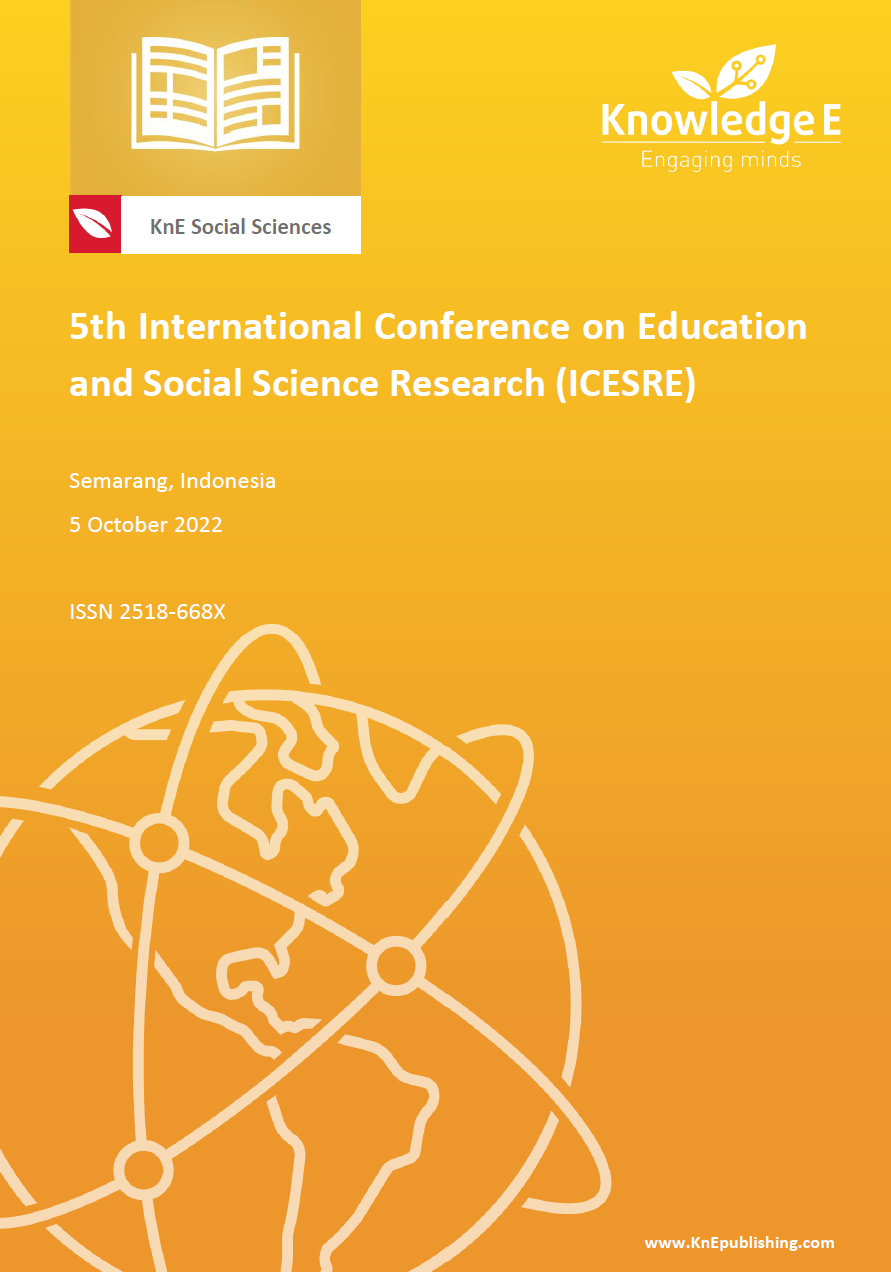Effectiveness of the Multiple Representation of Calculus with Mathematica Module to Improve Students' Creative and Critical Thinking Ability
DOI:
https://doi.org/10.18502/kss.v7i19.12465Abstract
This research aimed to determine the effect of applying the MRC-Math module using Mathematica software to improve students’ creative and critical thinking skills. This research used an experimental design. The sample of this study was 32 students who were taking Calculus courses. The results showed that applying the MRC-Math module improved learning outcomes and students’ creative and critical thinking skills. The results of the student response questionnaire showed that the percentage of learning achievement levels with the criteria was excellent. Furthermore, it is necessary to expand the application of this module for learning Calculus courses in several universities in Central Java.
Keywords: MRC-Math, Module, Critical Thinking, Creative Thinking.
References
[2] Marzano RJ. A different kind of classroom: Teaching with dimensions of learning. Alexandria, VA: Association for Supervision and Curriculum Development; 1992.
[3] Marzano RJ, Pickering D, McTighe J. Assessing student outcomes: Performance assessment using the dimensions of learning model. Alexandria, VA: Association for Supervision and Curriculum Development; 1993.
[4] ThinkX. Productive thinking fundamental: Participant workbook. Kanada: ThinkX Intellectual Capital IP Inc.; 2012.
[5] Hyman R.T. Ways of teaching. Philadelphia, New York, Toronto: J. B. Lippincott Co.; 1974.
[6] Harrington M. Australian curriculum, assessment, and reporting authority bill 2008. Parliamentary Library; 2008 Nov 24.
[7] Endahwuri D. Pengembangan perangkat pembelajaran mata kuliah Kalkulus Lanjut 1 dengan scaffolding berbasis kemampuan pemecahan masalah. Media Penelitian Pendidikan: Jurnal Penelitian dalam Bidang Pendidikan dan Pengajaran. 2015;9.
[8] Kalathil RR, Sherin MG. Role of students’ representations in the mathematics classroom. International Conference of the Learning Sciences. 2013:39–40.
[9] Gagatsis A, Elia I. The effects of different modes of representation on mathematical problem solving. International Group for the Psychology of Mathematics Education. 2004.
[10] Sobel Max A, Maletsky E M. Mengajar matematika. Jakarta: Penerbit Erlangga; 2003.
[11] Unaradjan DD. Quantitative research methods. Jakarta: Atma Jaya Unika Publisher Jakarta; 2019.
[12] Kusumastuti A, Khoiron AM, Achmadi TA. Metode penelitian kuantitatif. Jogjakarta: Deepublish; 2020.

